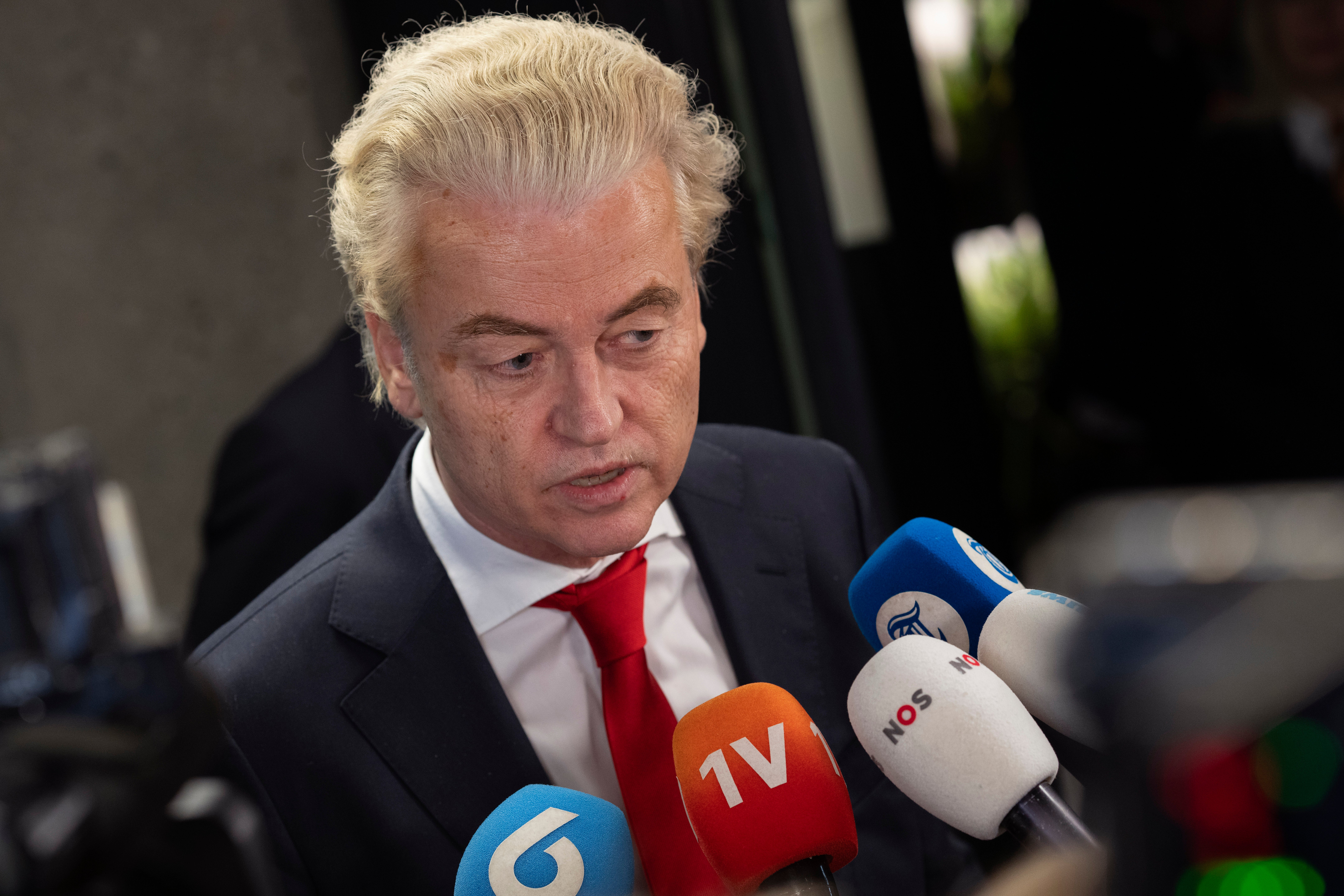Preliminary Dutch government talks delayed as official seeking coalitions says he needs more time
The official appointed to investigate possible coalitions after the Dutch election won by Geert Wilders’ far-right Party for Freedom says he needs more time

Your support helps us to tell the story
From reproductive rights to climate change to Big Tech, The Independent is on the ground when the story is developing. Whether it's investigating the financials of Elon Musk's pro-Trump PAC or producing our latest documentary, 'The A Word', which shines a light on the American women fighting for reproductive rights, we know how important it is to parse out the facts from the messaging.
At such a critical moment in US history, we need reporters on the ground. Your donation allows us to keep sending journalists to speak to both sides of the story.
The Independent is trusted by Americans across the entire political spectrum. And unlike many other quality news outlets, we choose not to lock Americans out of our reporting and analysis with paywalls. We believe quality journalism should be available to everyone, paid for by those who can afford it.
Your support makes all the difference.The official appointed to investigate possible coalitions after the Dutch election won by Geert Wilders ' far-right Party for Freedom said Friday he needs more time because of reluctance by potential partners to join Wilders in a government.
Ronald Plasterk, a former government minister from the center-left Labor Party, had been expected to present his report on possible formations early next week ahead of a Dec. 7 debate in the lower house of parliament.
But in a letter to the lower house president, Vera Bergkamp, he said he hopes to report back to her early in the following week.
The delay comes after two key parties backed away from joining a coalition with Wilders. The new leader of the People's Party for Freedom and Democracy (VVD) of outgoing prime minister Mark Rutte has said she will not join a coalition led by Wilders, but would offer it support in parliament.
Pieter Omtzigt, the leader of another potential coalition partner, New Social Contract, told Plasterk he was not yet ready to discuss forming a coalition with Wilders.
Omtzigt has previously criticized Wilders' repeated anti-Islam statements as unconstitutional. Wilders responded even before the election by saying that his long-held plan to “de-Islamize” the Netherlands are not currently a priority. He has urged Omtzigt, VVD leader Dilan Yeşilgöz-Zegerius and the agrarian Farmer Citizen Movement to join him in coalition talks.
According to official results confirmed Friday, Wilders' Party for Freedom won 37 seats in the 150-seat lower house in the election for a clear-cut victory. An alliance of the center-left Labor Party and Green Left finished second with 25 seats followed by the VVD with 24 and New Social Contract with 20. The Farmer Citizen Movement won seven seats.